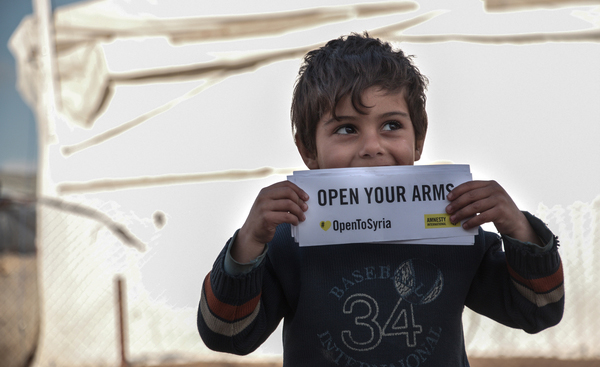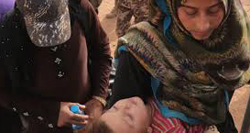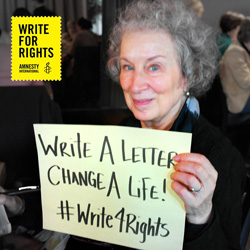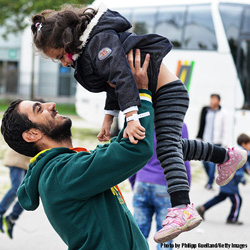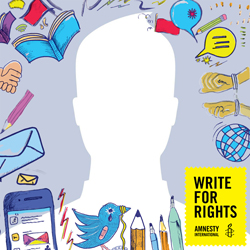INTERNATIONAL
Nearly 200 Nations Adopt Climate Agreement At COP21 Talks In Paris
Francois Mori/AP
In what supporters are calling a historic achievement, 196 nations attending the COP21 climate meetings outside Paris voted to adopt an agreement Saturday that covers both developed and developing countries. Their respective governments will now need to adopt the deal.
Presenting the plan aimed at curbing global warming ahead of Saturday's vote, France's Foreign Minister Laurent Fabius told the delegations, "You go into this room to decide a historic agreement. The world holds its breath and it counts on you."
The agreement, which was publicly released Saturday morning (ET), sets the goal of limiting the world's rise in average temperature to "well below 2 degrees Celsius above preindustrial levels and pursuing efforts to limit the temperature increase to 1.5 degrees Celsius."
Reporting on details of the deal, NPR's Christopher Joyce says, "To help developing countries switch from fossil fuels to greener sources of energy and adapt to the effects of climate change, the developed world will provide $100 billion a year."
He adds that the 1.5-degree cap was sought by island nations.
Under the agreement, the Obama administration says that for the first time, all countries will be required to report on "national inventories of emissions by source" and also to report on their mitigation efforts.
President Obama spoke on the agreement late Saturday afternoon, saying the agreement was a strong one, showing what is possible when the world stands as one.
"We met the moment," Obama said.
White House YouTube
UN Secretary-General Ban Ki-moon said: "With these elements in place, markets now have the clear signal they need to unleash the full force of human ingenuity and scale up investments that will generate low-emissions, resilient growth," adding that "what was once unthinkable has now become unstoppable."
Update at 3:05 p.m. ET: Hollande Gives Al Gore A Shout-Out
"You've done it," French President Francois Hollande told the delegates in the hall, setting off a new round of applause. "You have succeeded where six years ago there was failure."
Turning philosophical during his remarks, Hollande said that for everyone in the room today, they'll someday face questions such as "What was the meaning of our lives, what did we achieve."
And he answered, "one thing will come up time and again: you will be able to say that on the twelfth of December you were in Paris for the agreement on the climate. And you will be able to be proud to stand before your children and your grandchildren."
Hollande went on to acknowledge the work on climate change by former U.S. Vice President Al Gore — who's in attendance, and who rises and bows as people in the chamber yell and applaud.
We are entering a low-carbon age, Hollande said, adding later that the climate agreement represents the "most beautiful, most peaceful revolution" in the world.
Update at 2:27 p.m. ET: A 'Tremendous Victory,' Kerry Says
"This a tremendous victory for all our citizens," Secretary of State John Kerry says. "It's a victory for all the planet, and for future generations."
Kerry said the deal "will help the world prepare" for impacts of climate change that are either already here or are on the way, adding that it could prevent the worst environmental effects from coming to pass. He went on to say that American enterprise and businesses would play vital roles in that process.
Kerry also praised the summit's French hosts for their work on the agreement, particularly in light of the recent terrorist attacks.
"We've taken a critical step forward," Kerry says, adding that the next actions will be equally important.
Update at 1:43 p.m. ET: 'Single Most Important Collective Action'
Conservation International Chairman and CEO Peter Seligmann says the COP21 agreement "is a transformative diplomatic victory," but he adds, "The hard work of delivery begins now. The security of nations and humanity depends upon the reduction of emissions and the protection of nature."
The group calls the agreement "the single most important collective action for addressing climate change ever agreed upon."
Update at 1:30 p.m. ET: Deal Is Adopted
The hall erupts into applause after no one objects to a final adoption of the deal to combat global warming and rein in greenhouse gases.
After the excitement dies down, Fabius is reminded he must use his gavel to make the results official.
"It's a small gavel, but I think it can do a great job," he says as he raps it on the table.
Update at 1:18 p.m. ET: The Session Has Begun
After hours of delays, Fabius begins the evening's proceedings in France. The event quickly turns to correcting errors in the documents, such as differences between translations of the deal (it's in six languages).
Update at 12:50 p.m. ET: U.S. Supports Deal; Meeting Still Pending
With delays slowing the start of the meeting, we're hearing word that U.S. climate envoy Todd Stern says the United States will agree to the deal. Stern spoke to reporters as delegates entered the main gathering hall.
The Like Minded Group of Developing Countries — China, India, Saudi Arabia, and others — has said through a spokesman that they're "happy" with the deal, the BBC reports.
Our original post continues:
"The end is in sight. Let us now finish the job," UN Secretary-General Ban Ki-moon told delegates at the two-week meetings. "The whole world is watching. Billions of people are relying on your wisdom."
The document includes two essential recognitions:
- "that climate change represents an urgent and potentially irreversible threat to human societies and the planet and thus requires the widest possible cooperation by all countries"
- "that deep reductions in global emissions will be required in order to achieve the ultimate objective of the Convention and emphasizing the need for urgency in addressing climate change."
The deal also calls for five-year updates on how the plan is being instituted.
For it to take effect, all 196 individual governments in the UN's Framework Convention on Climate Change will need to adopt the final document. Working out terms of the deal required adding an extra day to the conference.
"Major hurdles included how much wealthy countries would spend to help developing countries adapt to climate change," NPR's Christopher Joyce reports from Paris. Chris adds, "donor countries will retain the right to monitor how that money is spent.
Urging negotiators to seize a chance to change the world, French President Francois Hollande said Saturday morning, "History is here. All the conditions are met. The decisive agreement for the planet is now."
